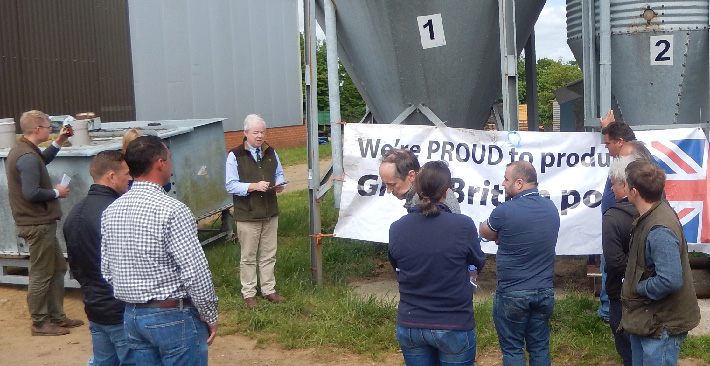A curate’s egg type of day (some would say bad in parts), but with sow prices continuing to improve, although they still have a long way to go. Unfortunately, demand for finished pigs remains lacklustre at best.
Sadly, the SPP took a sharp downwards step, dropping by 0.98p to 131.45p, and, as a result, some (but not all) weekly announced prices also went into retreat. As a result, contract pig prices for next week will be easier, coupled with a very quiet spot market with most buyers in this sector well supplied by regulars and no need to look for any additional pigs to top up their numbers, with spot bacon traded at, or close to, 130p depending on who you are and where you are.
Cull sow prices, however, moved up by 3–4p, with most quotes in the 60–63p range, but still a long way behind their value a year ago. It’s refreshing that the recent cull price improvement hasn’t been linked to currency changes, with the euro trading at a virtually identical level to last week, worth 73.41p on Friday afternoon.
The weaner market remains fickle, with the latest AHDB 30kg ex-farm average firmer than last week’s very low fix, and now stands at £43.65/head and the 7kg weaner price also improving a touch at £33.23/head.
There is, however, very little spare weaner space available, which is putting downward pressure on the spot and non-contract weaner values, coupled with an indifferent outlook for finished pig values in the weeks and months ahead despite a further improvement of a few cents in European mainland bacon pig values.
Grain futures prices have remained at largely similar levels on the week, with feed wheat quoted on the LIFFE market at £112/t for November and £117/t for March.
With harvest largely completed in the southern half of the country, and good progress being made further north, arable farmers will, however, be disappointed to see that spot wheat ex-farm quotes have now fallen below the £100/t threshold and the latest Farmers Weekly quote is £99.80/t, although this comes as music to the ears of pig producers.
And finally, it was very disappointing to hear of a surprise outbreak of swine dysentery in Norfolk hitting a very well run, medium-scale outdoor pig unit. Despite high levels of biosecurity, it remains a mystery to know the source of this particular nightmare disease.
All credit to the farmer, however, for notifying the NPA-backed Significant Disease Charter of the problem, which allows appropriate biosecurity measures to be taken by other farmers in the region, as well as livestock vehicle movements.
Self-declaration of dysentery outbreaks is a hugely expensive but honourable process, and it can only be hoped that no further carry-over of the disease occurs elsewhere.




